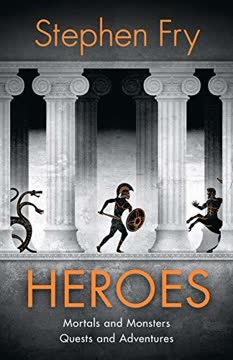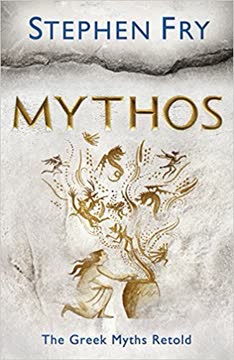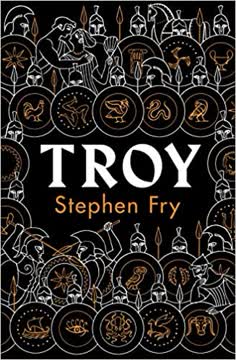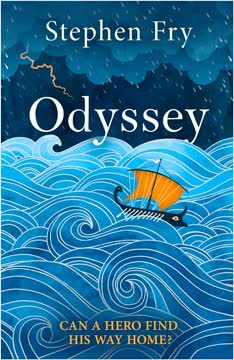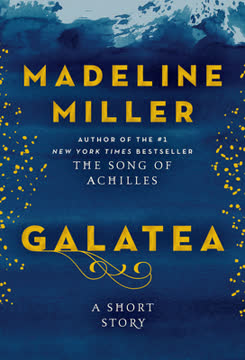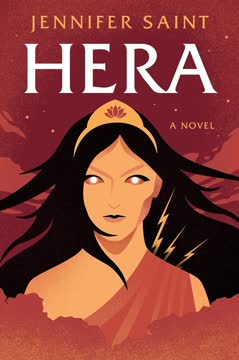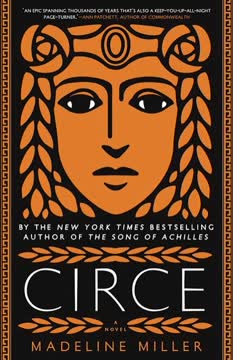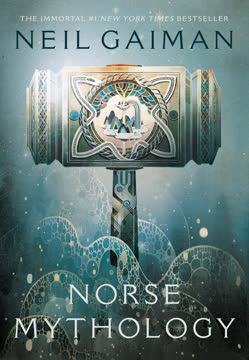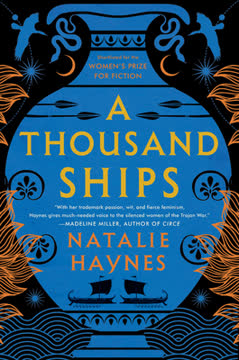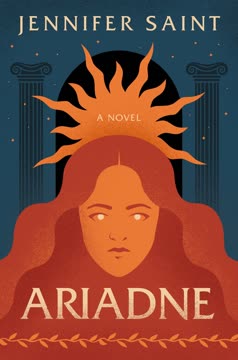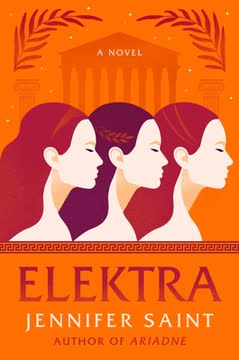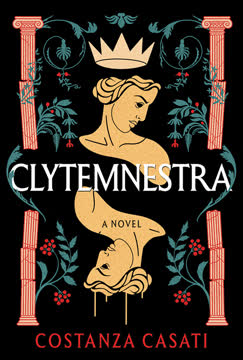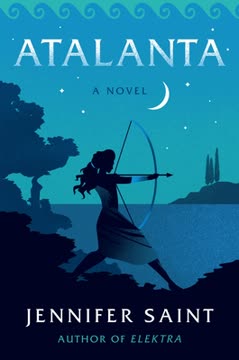Key Takeaways
1. Heroes are Defined by Courage, Cunning, and Lineage
These are the men and women who – either with or without the help of the gods – will dare to make the world safe for humans to flourish. These are the heroes.
Defining Heroism. The essence of a hero lies not just in strength or divine favor, but in the courage to confront overwhelming odds and the cunning to overcome them. Heroes like Perseus, Heracles, and Theseus, whether aided by the gods or relying on their own wits, strive to make the world a better place for humanity. This definition emphasizes action, agency, and a commitment to the well-being of others.
Lineage and Destiny. The concept of lineage plays a significant role in shaping a hero's destiny. Descendants of Perseus, for example, are prophesied to save the gods, highlighting the importance of ancestry and inherited traits. This creates a sense of predetermined purpose, adding weight to the hero's actions and struggles. The idea of a hero being "of the line of Perseus" is a recurring motif, suggesting that certain bloodlines are destined for greatness.
Humanity's Champions. Heroes are not flawless beings; they are mortals who grapple with their own limitations and make difficult choices. Their stories resonate because they reflect the human condition, showcasing the potential for greatness within ordinary individuals. By facing their fears and embracing their destinies, heroes inspire us to strive for our own potential.
2. The Gods Meddle, Often with Cruel Intent
The gods don’t punish each other, at least not very often. They punish us.
Divine Interference. The Olympian gods are not benevolent overseers but active participants in the lives of mortals, often with capricious and cruel intentions. Hera's relentless persecution of Heracles, driven by jealousy and spite, exemplifies the gods' tendency to use humans as pawns in their own power struggles. This interference highlights the precariousness of mortal existence and the challenges heroes face in navigating a world governed by divine whims.
Punishment and Caprice. The gods' punishments are often disproportionate to the offenses, reflecting a sense of arbitrary justice. Medusa's transformation into a Gorgon after being ravished by Poseidon in Athena's temple illustrates how mortals bear the brunt of divine anger. This capricious nature of the gods underscores the vulnerability of humans and the need for heroes to challenge divine authority.
Moral Ambiguity. The gods' actions are not always morally justifiable, raising questions about their fitness to rule. Zeus's infidelities and Hera's vengefulness create a world where divine power is often wielded irresponsibly. This moral ambiguity challenges the traditional notion of gods as paragons of virtue and highlights the complexities of the relationship between gods and mortals.
3. Heracles: Strength Tempered by Rage and Remorse
With uncomplaining patience he bore the trials and catastrophes that were heaped upon him in his turbulent lifetime.
Unmatched Strength. Heracles is the epitome of physical prowess, possessing strength that surpasses all other mortals. His twelve labors, imposed as penance for his crimes, showcase his ability to overcome seemingly impossible challenges. This strength, however, is often juxtaposed with his inner turmoil and struggles with rage.
Rage and Remorse. Heracles's defining characteristic is his uncontrollable rage, which leads to devastating acts of violence, including the murder of his own family. This rage is often triggered by Hera's machinations, highlighting the external forces that contribute to his downfall. His subsequent remorse and desire for atonement drive him to undertake the Labors, seeking redemption for his actions.
Endurance and Compassion. Despite his flaws, Heracles is admired for his unwavering commitment to justice and his willingness to help those in need. His compassion for others, coupled with his extraordinary endurance, makes him a complex and compelling figure. He is a reminder that even the strongest individuals are capable of both great good and great evil.
4. Bellerophon: Pride Precedes a Fall
They say that its wearer is invincible in battle. Can this be true?
Taming the Divine. Bellerophon's story begins with the extraordinary feat of taming Pegasus, a winged horse of divine origin. This act symbolizes his ambition and desire to transcend mortal limitations. His ability to ride Pegasus grants him unparalleled power and prestige, setting him apart from other heroes.
Hubris and Downfall. Bellerophon's success leads to arrogance and a belief in his own superiority. His attempt to fly to Olympus on Pegasus is a blatant act of hubris, challenging the established order of the gods. This transgression results in his downfall, as Zeus sends a gadfly to sting Pegasus, causing Bellerophon to fall to earth.
A Crippled End. Bellerophon's story serves as a cautionary tale about the dangers of pride and the importance of humility. His initial triumphs are overshadowed by his ultimate failure, leaving him a crippled, embittered, and lonely figure. This tragic end underscores the Greek belief that excessive pride inevitably leads to ruin.
5. Orpheus: The Power and Limits of Art
If anyone could tame Cerberus and charm CHARON the ferryman, it is you. If anyone could melt the hearts of Hades and Persephone, it is you.
The Power of Music. Orpheus is renowned for his unparalleled musical talent, capable of charming both humans and beasts with his lyre and voice. His music possesses a transformative power, able to soothe savage creatures and even move the hearts of the gods. This highlights the importance of art and beauty in the Greek world.
Love and Loss. Orpheus's love for Eurydice is the driving force behind his journey to the underworld. His grief at her death inspires him to use his musical gifts to plead with Hades and Persephone for her return. This underscores the power of love and the lengths to which individuals will go to reclaim what they have lost.
Tragic Limitations. Despite his extraordinary talent, Orpheus is ultimately unable to overcome the limitations of mortality. His failure to resist the temptation to look back at Eurydice results in her permanent loss, highlighting the fragility of human happiness. His violent death at the hands of the Thracian women further emphasizes the tragic fate that awaits even the most gifted individuals.
6. Jason: Leadership, Ambition, and Moral Compromise
Tell me what you want brought to you, my king, and I will bring it. Name it.
The Quest for Glory. Jason's ambition to reclaim his rightful throne drives him to embark on the perilous quest for the Golden Fleece. His leadership skills and ability to assemble a crew of renowned heroes demonstrate his determination to achieve his goals. This ambition, however, is often tempered by his willingness to compromise his morals.
Moral Ambiguity. Jason's actions throughout the quest are often morally questionable, highlighting the complexities of leadership and the sacrifices required to achieve success. His betrayal of Medea, for example, demonstrates a willingness to prioritize his own ambitions over personal loyalty. This moral ambiguity challenges the traditional notion of a hero as a purely virtuous figure.
A Tragic End. Jason's story serves as a cautionary tale about the corrupting influence of power and the consequences of moral compromise. His ultimate demise, sleeping under the rotting stern of the Argo, underscores the futility of his ambition and the tragic fate that awaits those who prioritize personal gain over ethical considerations.
7. Theseus: The Athenian Ideal of Heroism
You will not be worthy to live in the world of men until you have paid the full price.
Justice and Order. Theseus embodies the Athenian ideals of justice, reason, and civic responsibility. His labors along the Isthmian Road, ridding the land of monstrous outlaws, demonstrate his commitment to establishing order and safety for the people of Attica. This emphasis on justice and civic duty reflects the Athenian values of law and governance.
Intelligence and Wit. Unlike the brute strength of Heracles, Theseus relies on his intelligence and cunning to overcome his adversaries. His defeat of the Sphinx through a clever riddle and his strategic approach to wrestling Cercyon highlight the importance of intellect and adaptability. This emphasis on wit and reason reflects the Athenian emphasis on intellectual pursuits.
A Flawed Ideal. Despite his heroic qualities, Theseus is not without his flaws. His abduction of Helen and his role in the death of Hippolytus demonstrate his capacity for poor judgment and moral compromise. This complexity makes him a more relatable and human figure, reflecting the Athenian understanding that even the greatest leaders are capable of making mistakes.
8. Fate and Free Will Intertwine in the Heroic Journey
Prometheus, whose name means Forethought, has prophesied that now fire is in the world of man, the days of the gods are numbered.
Predetermined Destiny. The heroes' lives are often shaped by prophecies and divine interventions, suggesting a predetermined destiny. Oedipus's fate to kill his father and marry his mother, despite his efforts to avoid it, exemplifies the power of fate in shaping human lives. This raises questions about the extent to which individuals have control over their own destinies.
Choice and Agency. Despite the influence of fate, heroes are not mere puppets of the gods. They make choices and exercise their agency, shaping their own paths within the confines of their predetermined destinies. Heracles's decision to undertake the Labors, despite the suffering they entail, demonstrates the power of human will.
The Paradox of Existence. The interplay between fate and free will creates a sense of paradox in the heroic journey. Heroes are both subject to external forces and capable of shaping their own destinies. This paradox reflects the complexities of human existence, where individuals grapple with the tension between predetermined circumstances and personal agency.
Last updated:
FAQ
What is Heroes: Mortals and Monsters, Quests and Adventures by Stephen Fry about?
- Comprehensive retelling of Greek myths: The book offers a vivid, accessible retelling of the Age of Heroes in Greek mythology, focusing on legendary figures and their adventures.
- Interplay of gods and mortals: It explores how divine intervention, fate, and human choices shape the destinies of heroes, blending mythological events with relatable emotions.
- Themes of heroism and tragedy: Fry highlights the courage, flaws, and moral dilemmas of heroes, making ancient myths relevant and engaging for modern readers.
- Rich mythological context: The narrative situates heroes within the broader Greek mythos, including gods, monsters, and primordial beings, with detailed character lists and footnotes.
Why should I read Heroes: Mortals and Monsters, Quests and Adventures by Stephen Fry?
- Accessible and entertaining storytelling: Fry’s witty, modern prose makes complex myths easy to understand and enjoyable, appealing to both newcomers and mythology enthusiasts.
- Humanizes legendary figures: The book presents heroes as flawed, passionate, and relatable, offering fresh perspectives on familiar stories.
- Insight into ancient culture: Readers gain a deeper understanding of Greek mythology’s influence on literature, art, and psychology.
- Engaging blend of humor and scholarship: Fry combines scholarly detail with humor and empathy, making the myths both informative and entertaining.
Who are the main heroes featured in Heroes by Stephen Fry, and what are their key stories?
- Perseus: Known for slaying Medusa, rescuing Andromeda, and founding Mycenae, his story involves divine parentage and fulfilling a dangerous prophecy.
- Heracles: Famous for his Twelve Labours, immense strength, and tragic family life, he embodies perseverance and the struggle for redemption.
- Jason and Medea: Central to the quest for the Golden Fleece, their story explores love, betrayal, and Medea’s magical, often ruthless, interventions.
- Atalanta, Oedipus, and Theseus: Atalanta challenges gender norms as a huntress, Oedipus’s life is marked by prophecy and tragedy, and Theseus is celebrated for slaying the Minotaur and uniting Athens.
What are the key themes and takeaways from Heroes: Mortals and Monsters, Quests and Adventures by Stephen Fry?
- Human qualities and heroism: Courage, wit, and perseverance define the heroes, who confront adversity and transcend limitations.
- Fate versus free will: The tension between destiny and personal choice is central, as heroes navigate prophecies and divine plans.
- Cost of heroism: Many heroes face tragedy, loss, and moral challenges, showing that greatness often comes with sacrifice and suffering.
- Interplay of mortals and gods: The stories illustrate how divine favor, intervention, and wrath shape human destinies.
How does Stephen Fry portray the involvement of gods and magic in the heroes’ quests in Heroes?
- Divine gifts and interventions: Gods frequently provide magical items, guidance, and protection, such as Hermes’ winged sandals for Perseus or Medea’s enchantments for Jason.
- Double determination concept: Fry explains how myths attribute causality to both human actions and divine will, enriching narrative complexity.
- Gods as symbolic forces: The Olympians represent human drives and emotions, with their favor or wrath often determining heroes’ successes or failures.
- Fate’s inevitability: The Moirai (Fates) and prophecies illustrate the limits of free will, as heroes often fulfill their destinies unwittingly.
What is the significance of fate and prophecy in Heroes by Stephen Fry?
- Prophecies drive the narrative: Many heroes’ lives are shaped by oracles and dreams, such as Oedipus’s and Perseus’s destinies.
- Struggle against destiny: Characters often attempt to avoid their fates, only to fulfill them through their actions, highlighting tragic irony.
- Fate beyond divine control: Even gods are subject to the Moirai, emphasizing the inevitability of certain outcomes.
- Explores human agency: The tension between fate and free will is a recurring theme, prompting reflection on personal responsibility.
How does Stephen Fry retell the story of Jason, Medea, and the quest for the Golden Fleece in Heroes?
- Jason’s perilous quest: Sent by his uncle Pelias, Jason assembles the Argonauts and faces challenges like the Harpies and Clashing Rocks.
- Medea’s magical aid: Medea, a powerful sorceress, falls in love with Jason and helps him complete impossible tasks, including obtaining the Fleece.
- Tragic consequences: Medea’s devotion turns ruthless, leading to the murder of her brother and later her own children, exploring themes of love, betrayal, and revenge.
- Complex morality: Fry presents Medea as both devoted and vengeful, highlighting the human and tragic aspects of her character.
What are the Twelve Labours of Heracles as presented in Heroes by Stephen Fry?
- Series of impossible tasks: Heracles must complete twelve labours to atone for a tragic crime, including slaying the Nemean Lion and capturing Cerberus.
- Tests of strength and wit: The labours require not just brute force but also cunning, such as tricking Atlas to retrieve the golden apples.
- Symbolic transformation: Completing the labours leads to Heracles’ purification and eventual immortality, embodying perseverance and divine favor.
- Enduring legacy: Heracles becomes the greatest of Greek heroes, his story illustrating the cost and glory of heroism.
How does Stephen Fry portray the story and significance of Oedipus in Heroes?
- Marked by prophecy: Oedipus’s life is shaped by the oracle’s prediction that he will kill his father and marry his mother, despite efforts to avoid this fate.
- Triumph of intellect: His solution to the Sphinx’s riddle earns him the throne of Thebes, symbolizing the power of reason.
- Tragic self-discovery: The investigation into Laius’s murder leads to the revelation of Oedipus’s own guilt, resulting in Jocasta’s suicide and his self-blinding.
- Themes of knowledge and fate: Fry emphasizes the limits of human control and the horror of self-awareness, making Oedipus a symbol of tragic irony.
What is the significance of the Calydonian Boar Hunt and Atalanta’s role in Heroes by Stephen Fry?
- Divine punishment and chaos: The hunt is Artemis’s response to a slight, bringing together many heroes and symbolizing the clash between civilization and wildness.
- Atalanta’s exceptional skill: As the only woman among the hunters, Atalanta’s prowess challenges gender norms and earns her divine favor.
- Tragic aftermath: The hunt leads to family conflict and death, including Meleager’s demise and the transformation of his sisters into birds.
- Themes of fate and retribution: The story underscores the consequences of pride, jealousy, and divine intervention.
How does Stephen Fry present the story of Theseus, the Labyrinth, and the Minotaur in Heroes?
- Early labors and heroism: Theseus’s journey to Athens involves defeating brigands and monsters, establishing his reputation as a clever and strong hero.
- Slaying the Minotaur: With Ariadne’s help and a ball of thread, Theseus navigates the Labyrinth and kills the Minotaur, freeing Athens from tribute.
- Symbolism of the Labyrinth: The maze represents complexity and entrapment, while Theseus’s success symbolizes reason overcoming chaos.
- Later challenges: Theseus’s reign is marked by political struggles, tragic family events, and eventual exile, reflecting his human flaws.
How does Heroes: Mortals and Monsters, Quests and Adventures by Stephen Fry address the complexities and costs of heroism?
- Heroes as flawed humans: Fry depicts heroes as complex individuals with virtues and vices, making their stories relatable and compelling.
- Interplay of divine and mortal: Heroism arises from the interaction between mortal courage and divine influence, with heroes often facing human limitations.
- Sacrifice and tragedy: Many heroic acts come at great personal cost, including loss, suffering, and unintended consequences.
- Reflection on glory: The book invites readers to consider the true nature of heroism, its rewards, and its heavy price.
Review Summary
Heroes receives high praise for its engaging retelling of Greek myths, focusing on legendary heroes like Perseus, Heracles, and Jason. Readers appreciate Fry's wit, accessible writing style, and modern perspective on ancient tales. The audiobook narrated by Fry is particularly lauded. Some reviewers note that the book covers a lot of ground quickly, potentially sacrificing depth. Overall, it's recommended as an entertaining introduction to Greek mythology, though some prefer its predecessor, Mythos.
Stephen Fry's Great Mythology Series
Similar Books
Download PDF
Download EPUB
.epub digital book format is ideal for reading ebooks on phones, tablets, and e-readers.
